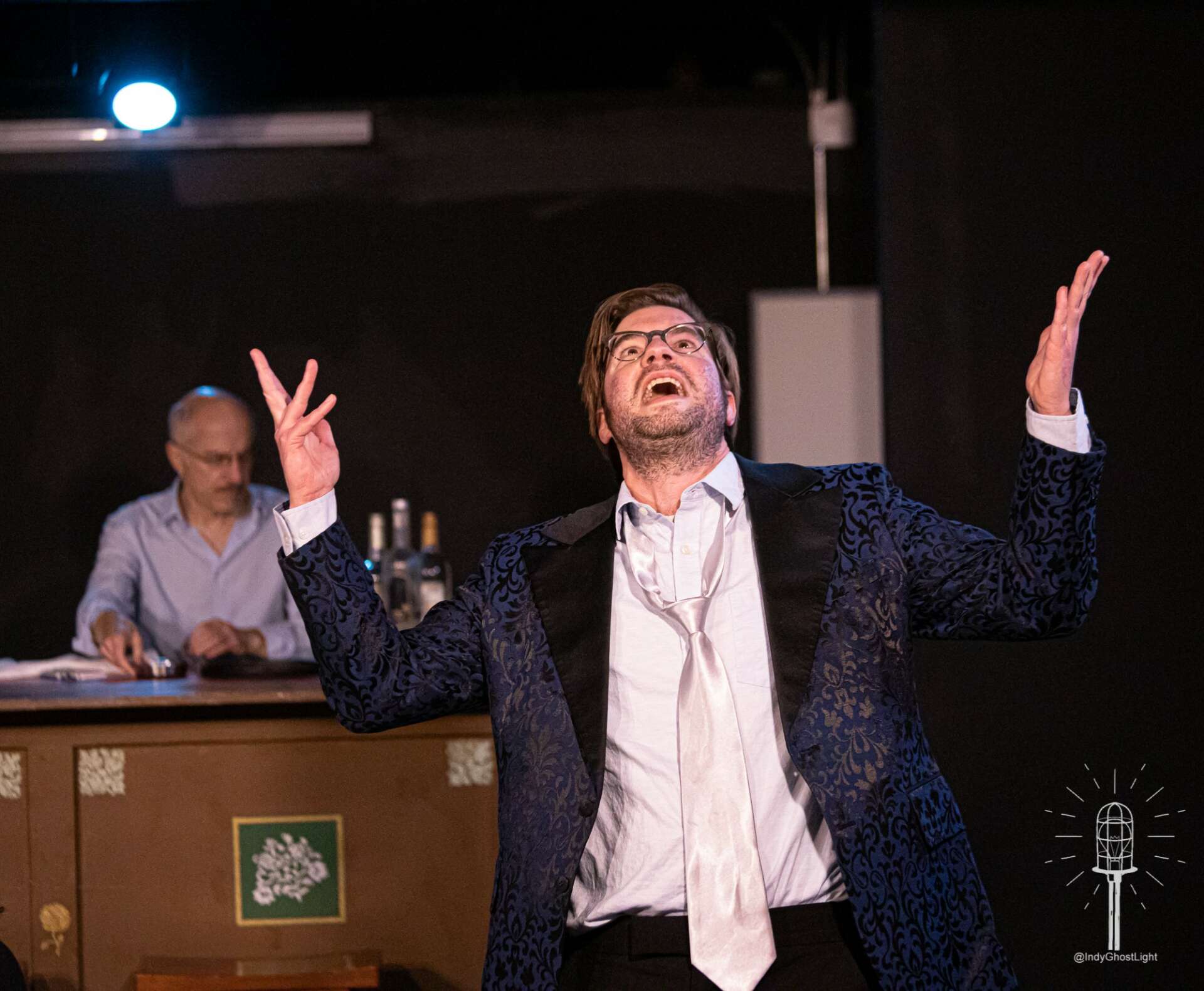Alright – so today we’ve got the honor of introducing you to Marcia Eppich-Harris. We think you’ll enjoy our conversation, we’ve shared it below.
Marcia, appreciate you joining us today. If you could go back in time do you wish you had started your creative career sooner or later?
I was involved in theatre in high school and college as a byproduct of being a singer. I participated in musicals, and while I was a decent singer, I wasn’t a very good actor — I was way too inhibited at that age — so I didn’t even consider a career in theatre, even though I loved it. I thought music and/or writing would be stronger paths for me to take. However, even as a writer, I didn’t think being a playwright was an option. I wrote fiction instead. Later, in graduate school, I got hooked on reading plays, and studied Shakespeare and dramatic literature from the ancient Greeks until the modern world, but my writing was still focused on fiction. I wrote pretty dialogue heavy fiction because I was reading plays so much. About four years ago, I met a playwright who, after hearing my backstory with teaching dramatic literature, asked me why I hadn’t written plays. I decided to try it, and the rest is history. I haven’t completely abandoned fiction, but playwriting is much more natural to me, and I love it! I really wish I had figured that out in my twenties instead of my forties. But then again, I have more to say now than I did when I was younger.



Marcia, before we move on to more of these sorts of questions, can you take some time to bring our readers up to speed on you and what you do?
I founded Southbank Theatre Company in 2021. Our mission is to produce Indiana playwrights, as well as historically significant playwrights, and adaptations of historically significant works. My love of history, philosophy, politics, and art comes through in most of the plays that we produce. I’m particularly interested in how those subjects can contribute to critical thinking, self-awareness, and social change. I have a background in academia, and I think of theatre as a place to have an intellectual experience as well as an entertaining night out. When I go to the theatre, I want to be challenged to think. So when I choose plays to produce at Southbank, my bias is to select shows that are engaging and make you want to talk about them for a long time.
What can society do to ensure an environment that’s helpful to artists and creatives?
Of course, financial support is always needed and appreciated, but I think that one of the things that society can do to support the arts is prioritize a liberal arts education in K-12 schooling that emphasizes literature. I have children in middle school and high school right now, and so much of what they are assigned to do is absolutely soul draining. If I had had to read mostly nonfiction in school with an emphasis on science, I would never have become a creative person. Reading literature in multiple genres (fiction, plays, poetry) taught me to be empathetic, expanded my horizons, showed me multiple ways to be expressive, and excited me about storytelling. But then, digging deeper into a story through classes where we had to think more deeply about what was happening in these works also gave me critical thinking and analytic skills that I use all the time both in everyday life and as a creative person. Studying literature also gave me the ability to pay attention to details, strive to look beyond surface meaning, and find ways to be resilient. This is not to say that other subjects aren’t important — clearly they are — but having a solid foundation in being able to read, and being excited about reading, starts with reading texts that speak to you as a human being. Then, you can gain the resilience to read harder texts, like science, history, social science, psychology, and anything you want. If you’re turned off from reading at a young age, I feel like you’re going to have a lack of curiosity and stagnation that make life really depressing.




For you, what’s the most rewarding aspect of being a creative?
One of the things that I love as a producer is watching the audience watch theatre. By the time an audience comes to the theatre, I’ve seen the show enough times to have it practically memorized myself. So I watch how audiences react while watching the show. I know if a moment lands well from their posture, the ambient noise in the room, the level of tension, and so much more. It’s really incredible to witness. And when an audience is reacting to something you’ve written, it’s even more rewarding. Did they laugh at that joke you’re so proud of? Did they seem moved when this particular character dies? Did they flinch when the surprise happens? Watching people watch a show, it’s as if you are experiencing live feedback for your work, and you learn a lot from it. When people laugh, cry, cheer, react, it means that I’m doing a good job, and it’s an extremely affirming, communal experience. If I made people feel something and think hard about a story or characters, then I’ve done a good job.
Contact Info:
- Website: meppichharris.com
- Instagram: @eppichharris
- Facebook: https://www.facebook.com/marcia.eppichharris/
- Linkedin: https://www.linkedin.com/in/marcia-eppich-harris-7002052/
- Twitter: @EppichHarris
- Youtube: https://www.youtube.com/channel/UCccEzc9wFnBJKJDkEFaDfoA
- Other: southbanktheatre.org
Image Credits
Pictures by Indy Ghost Light Photography


